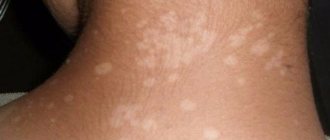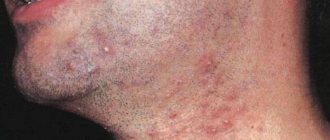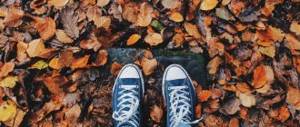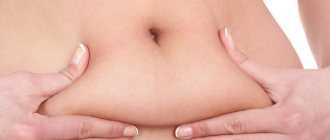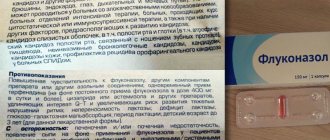During these first few autumn days, many managed to complain of a runny nose, cough, sore throat and fever. It is in the fall, according to doctors, that the likelihood of colds is highest. How not to get sick?
A decrease in air temperature, gusty winds and frequent rains in the autumn period lead to hypothermia of the body, which causes a decrease in immune defense, which in turn leads to acute respiratory viral diseases.
In the autumn period, human nutrition also changes: not only do water-soluble vitamins of eaten summer fruits, berries and vegetables do not accumulate, in the fall the amount of foods that are sources of vitamin C also decreases (vitamin C remains in the body for no more than two weeks) and a number of other biologically active compounds, which also reduces the body's protective properties. In addition, autumn is, as a rule, the post-vacation time, when many return to work, and schoolchildren and students begin their studies. Often this period is accompanied by stress, which negatively affects the state of the immune system. Autumn is also a period of exacerbation of a number of chronic diseases that weaken the body, thereby creating conditions for the penetration of pathogenic viruses and bacteria.
Nutritious food
The diet in the autumn should be as varied as possible. Give preference to foods that contain large amounts of vitamins, minerals and other beneficial substances. Include fish, eggs, meat, dairy products, fresh vegetables and fruits (you can use frozen ones), as well as freshly squeezed juices in your menu. Rosehip infusions and herbal teas will be useful.
Cold prevention
Everyone knows that colds are often caused by a variety of viruses, and you can catch the virus anywhere: in the air, shaking hands, holding something in a public place, etc. Therefore, when you come home, be sure to wash your hands with soap and water with special care so that the virus does not settle on the mucous membranes. But the mucous membranes can also be protected, for example, by rinsing your nose daily with salted water (half a teaspoon of salt, preferably sea salt (purified) per 1 glass of water). Salt solutions increase the pH level of the environment, making it unsuitable for the existence of viruses.
Herb tea
The most powerful source of vitamins that increases the body's resistance to colds is herbal tea. Mint, raspberries, black currants, lingonberries, linden and apple flowers have a diaphoretic and antipyretic effect, minimizing the first signs of a cold.
Tea with lemon
Lemon fights colds by killing pathogens. If you already feel a sore and tingling sensation in your throat and feel chilly, feel free to squeeze half a lemon into a glass of tea. The well-known phrase “tea with lemon” will do the trick.
Garlic
The most reliable and proven way to protect yourself from colds is 2 cloves of fresh garlic per day. To avoid bad breath, garlic can be cut into slices and swallowed without chewing. By the way, the smell of garlic will disappear if you rinse your mouth with water and lemon, or simply drink tea with enough lemon juice. The phytoncides contained in garlic seem to replace the effect of antiviral drugs, taking on the fight against viruses.
Natural adaptogens
In the autumn period, more than ever, there is a need to activate the body's defenses; to do this, you need to regularly drink 15-20 drops of tinctures of eleutherococcus, echinacea and ginseng every day. These plants really increase the body's resistance to all harmful environmental factors, including viruses. They are the strongest natural adaptogens.
Humidify the air
The heating season usually begins in mid-autumn, and it is often during this period that a surge in colds is recorded, especially among children. Why is this happening? The thing is that in heated rooms the air is dry, and the mucous membrane of the nasal cavity is correspondingly dry, which makes it much easier for the virus to penetrate the respiratory tract. Therefore, in order to reduce the likelihood of infection, use humidifiers, or at least ventilate the premises frequently.
How to treat autumn colds
Autumn is not only a great time for walking in the fresh air, but also the time for colds. Komsomolskaya Pravda tells how not to catch a cold on the last warm days and how to deal with unpleasant symptoms if you do get sick.
Recognize
Not a single medical reference book contains such a thing as a cold. In fact, the cause of all diseases is viruses, of which there are more than 200 types. Most often, doctors make diagnoses of acute respiratory infections, acute respiratory viral infections and influenza.
Acute respiratory disease (ARI) is a respiratory tract infection caused by both bacteria and viruses. Most often it begins with an increase in temperature to 38 ° C, while a runny nose and inflammation of the mucous membranes of the eyes are usually absent. Symptoms persist for approximately two weeks despite treatment.
Acute respiratory viral infection (ARVI) is a more accurate diagnosis that indicates the viral nature of the disease. Its first signs are a broken state, headache, malaise. After one or two days, the sick person develops a sharp runny nose, sneezing and a severe cough. Then the disease subsides, and the person recovers within a week, even without intensive treatment.
Influenza, despite being part of the ARVI group, has a different story. It is caused exclusively by the influenza virus, and the very first symptom is a sharp rise in temperature to 39 °C. It is also more complex than other diseases and more often than others causes complications in the form of pneumonia or bronchitis.
Get rid of
If you do experience unpleasant symptoms, you should under no circumstances leave things to chance. A simple runny nose and sore throat, if not treated in time, can lead to serious complications - pneumonia, myocarditis and pyelonephritis.
So, as soon as you have a runny nose, sore throat and fever, you may need medicinal support for your body. It should be started with vitamin C in a dosage of 0.5–1 g at night and 2–3 times in the same dosage the next day. You also need drugs containing interferon (nasal drops), or stimulators for the production of your own interferon (amixin, amizon, arbidol).
In addition to medications, folk remedies will also help in the fight against colds.
For nasal congestion
Dilute a few drops of eucalyptus oil in the same volume of warm water. Instill the resulting solution into each nasal passage.
For sore throat
Pour 0.5 liters of boiling water over a handful of sage leaves, close tightly and keep in a dark place for at least 20 minutes. To increase the effectiveness of the infusion, you can add half a teaspoon of sea salt to the glass before rinsing. Inhalations with essential oils of sage, eucalyptus, rosemary, mint, lemon, marjoram, and chamomile will also help. To do this, one to two drops of essential oil per 0.5 liters of hot water is enough.
At high temperature
Dissolve one to two tablespoons of prepared grated raspberries with sugar in a glass of boiling water. It is necessary to drink it warm at elevated temperatures, chills, and body aches. Or pour one or two tablespoons of dried raspberries into a glass of boiling water and leave for 20 minutes. Drink a glass of hot drink two to three times a day.
For chills
Citrus baths will help warm up the body. To do this, you need to crush 100–150 g of dry orange (tangerine, lemon) zest, pour in 1 liter of boiling water, leave for 20–30 minutes. Pour the infusion into the bath. To increase its effectiveness, you can add two to three drops of rose essential oil.
Why do we get sick
The most important cause of autumn diseases is a change in the rhythm of life. Vacations and summer holidays are ending, daily routines are changing, new responsibilities appear, and this is stress for the body. During this period, immunity weakens noticeably, and the human body becomes most vulnerable to viruses.
Another cause of autumn colds is temperature changes outside. In Primorye in September, the daytime is summer-like, but in the morning and evening the temperature drops quite significantly. Therefore, many people choose clothes that are not suitable for the weather, which can lead to hypothermia.
Note that even colds have risk groups. First of all, these are children under 7 years of age, as well as elderly people over 60–65 years of age. Heavy smokers are vulnerable because they have impaired immunity of the mucous membranes of the nose, mouth and larynx. Women during the premenstrual period are also susceptible to colds. It is at this time that the fair sex’s immunity decreases and the likelihood of catching a cold increases three to four times.
Important!
Do not forget that during colds it is best to stay at home and stay in bed for two to three days. This will help avoid serious complications caused by colds.
To avoid
Avoiding colds is quite easy. Simple rules of personal hygiene and a healthy lifestyle can protect the body from diseases.
Wash your hands with soap!
Colds are not only transmitted by airborne droplets. Viruses can enter the body through the skin or mucous membranes of the eyes and nose. Therefore, after visiting public places, be sure to wash your hands with soap. However, do not forget that antiseptic solutions and wet wipes will not protect you from viruses.
How to protect yourself from autumn colds: ten tips
YEREVAN, September 25. News-Armenia.
Leading international experts have named methods that really help protect against infection during the cough and runny nose season.
Komsomolskaya Pravda provides advice from leading European immunologists and virologists. 1. Keep your nose warm.
Doctors have long advised us not to let our feet get too cold to avoid catching a cold, but Professor Ron Eccles from the Center for Cold Research at Cardiff University (Wales) adds: one of the reasons we catch colds more often in autumn and winter is because our noses cool down, quotes an expert. British Dailymail. After all, this organ is the main gateway for respiratory viral infections transmitted by airborne droplets.
As the temperature drops, blood circulation slows down, and as a result, fewer immune blood cells reach the meeting place with microbes, protecting the body from the “enemy.” Therefore, doctors advise keeping not only your feet, but also your nose warm. If you feel cold in cool weather, cover yourself with a scarf and inhale the warm aroma of coffee or tea.
2. Shake hands less often.
Doctors recommend using this popular greeting during the cold season as rarely as possible. “The stronger and longer the handshake, the more germs the handshake will pass on to each other,” warns David Whitworth, professor of biochemistry at Aberystwyth University. Of course, the virus will not enter your body directly through the skin of your palms, but most people, one way or another, then put their hands to their mouth, scratch their nose and eyes.
And in this way, with all convenience, microbes are delivered to the mucous membranes, through which the infection has every chance of penetrating inside. And it’s one thing when your counterpart is already coughing and sneezing with all his might - then you can still guess to wash your hands as soon as possible. However, the insidiousness of a cold is that a person who has contracted the virus does not have noticeable symptoms in the first days, but at the same time he is most contagious, virologists warn.
3. Wash clothes in hot water.
Often, in order to save electricity, we set the washing machine to a low temperature mode, or even wash in cold water. However, in the midst of microbial attacks, experts advise washing at no lower than 40 degrees (except when this is prohibited by the instructions on the label). It is at this temperature that the germs that cling to clothes in public places, where our fellow citizens with colds cough and sneeze, will die.
4. Eat less sweets.
To prevent a sore throat and stuffy nose from adding to the autumn blues, try to cheer yourself up not with cakes and sweets, but with fruits high in vitamins - apples, grapes, citrus fruits. Research conducted at Loma Linda University (California, USA) showed that volunteers who consumed 100 grams of sugar per day equaled four full tablespoons, including sugar in baked goods, sauces, etc. - the body's defenses decreased. With an excess of sweets, our immune phagocyte cells partially lose their ability to catch and destroy microbes. This weakening of protection is observed on average up to five hours after consuming a large dose of sugar. Let's remember: The World Health Organization recommends eating no more than 25 g of sugar per day, that's 5 teaspoons.
5. Sleep at least 8 hours.
Research conducted at Yale University (USA) showed that lack of sleep disrupts the functioning of the TLR-9 gene, which is responsible for immunity. Those who sleep less than 7 hours a night are three times more likely to catch a cold than those lucky enough to get 8 hours of sleep, scientists warn. By the way, sufficient but disturbing sleep has an equally negative effect on the immune system. To normalize it, doctors advise walking more in the evening and drinking less fluids at night (going to the toilet in the middle of the night, according to statistics, ranks first among the reasons that interrupt normal sleep).
6. Follow the “two-seat rule”
The risk of catching a cold or flu increases sharply if you are within two rows of seats from someone who is sneezing or coughing, research from the Australian National University Canberra has found. Therefore, when on public transport, change seats or step aside, scientists advise.
If you find yourself in a car with a sneezing person and the trip lasts at least 90 minutes, then the risk of catching the virus is 99.9%, researchers say. At the same time, if you open the windows, the risk of infection will decrease by about 20%. In general, do not forget to ventilate any premises more often
7. Instead of napkins and antiseptic, use soap and water
Nowadays it is fashionable to keep your hands clean by dripping sanitizer from a beautiful bottle or wiping your fingers with antiseptic wet wipes. However, scientists advise not to delude yourself that these products can be a serious protection against viruses that get on your hands when we touch handrails in public places, door handles and other objects.
“Although hand sanitizers contain up to 80% alcohol, they are not able to completely clean your hands and kill all cold and flu pathogens,” warns Dr. Lisa Ackerley. “The most reliable means of protection is washing your hands with soap and water, and be sure to do this when returning from public places.”
8. Rinse your nose with salt water.
As research from the University of Pennsylvania has shown, a salt shower helps reduce the number of germs, preventing them from gaining a foothold in the nasal cavity. Due to this, the virus loses the ability to multiply and penetrate the body. Convenient sprays with sea water or sea salt can now be found in any pharmacy.
9. Play sports, but without overload.
Moderate physical activity - both fitness and simple walking or housework stimulate the immune system. However, scientists from Loughborough University (England) found that high-intensity exercise for 90 minutes significantly increases the production of stress hormones. At the same time, the body produces anti-inflammatory substances that suppress immune reactions. As a result, resistance to cold viruses decreases.
So, if you feel even slightly unwell, refrain from active strength training. It is better to replace them with walking, cycling or gentle stretching exercises.
10. Replenish vitamin D deficiency
Researchers at the University of Colorado have found that insufficient levels of vitamin D in the body reduce the production of substances that stimulate the immune system. At the same time, the risk of catching cold viruses increases by at least a third.
Signs of vitamin D deficiency may include joint pain, muscle cramps, and general weakness. The richest sources of this vitamin are cod liver, fatty fish, eggs, and dairy products.—0—
Tip 1: How to protect yourself from colds
The most common disease during the cold season is the common cold. Feet wet in slushy weather and hypothermia almost always lead to illness. The fact is that the lack of sun and vitamins weakens our immunity, and viruses, alas, do not sleep. Following some simple rules will help you protect your body and avoid colds.
Instructions
- Dress appropriately for the weather. Some people mistakenly believe that by dressing warmer than necessary, they will definitely not get sick, because an additional layer of clothing helps to avoid hypothermia. But that's not true! By sweating in an extra jacket, you will be more sensitive to the slightest gust of wind, therefore, you will get sick even faster than you think.
- Include garlic and onions in your diet, they are excellent antiviral agents. You can place them on saucers throughout the apartment, then you will be able to protect yourself from colds , even if one of your family members is sick.
- Place oxolinic ointment in your nose. It is an excellent barrier agent that prevents the virus from entering the respiratory tract. If you prefer to do without medications, lubricate your nasal passages with sunflower oil. The fat film in the nose will also protect well from germs.
- Take multivitamin complexes. They help replenish the deficiency of nutrients, which has a beneficial effect on your immune system. Drinks rich in vitamin C are also an excellent preventive measure. Tea with lemon, cranberry juice and orange juice will give the body strength, both to prevent a cold and to fight it if you do get sick.
- Play sports. Running, skiing, skating, swimming, and just long walks will have a positive effect on your body. This will not only help you stay in great shape, but will improve your sleep. A full, sufficient night's rest is necessary to increase the body's resistance.
- Avoid visiting crowded places, if possible, of course. If possible, use personal transport instead of public transport, visit small shops instead of large hypermarkets, and refrain from going to the cinema and theater. With the end of the cold weather, the likelihood of catching a cold will decrease, and you can return to a normal rhythm of life.
KakProsto.ru>
What do you need to avoid getting sick?
The secret of health is very simple; to be “alive” all year round you need to adhere to five rules.
- Healthy sleep. The key to a cheerful spirit and good health is more than seven hours of sleep. This theory was confirmed by a study that showed that if a person sleeps less than six hours, the risk of disease increases fourfold.
- Personal hygiene. Following the rules of hygiene has not harmed anyone, and as research has shown, this activity is still very useful. If a person regularly takes care of the cleanliness of their hands, the risk of infection is reduced by 20%. When washing your hands, germs die and thus do not enter the body or other parts of the body.
- Dress warmly. Fashion is fashion, but health comes first. Hypothermia is fraught with weakened immunity, which makes the body vulnerable to viruses. Dress warmly, but in moderation, so as not to sweat. It is better to choose clothes so that if something happens, you can take something off.
- Medical mask. During the season of viruses and widespread colds, this thing is indispensable. Especially if someone is already sick at home or at work. The mask prevents harmful germs from entering the respiratory tract. And thanks to the durable material, all pathogenic germs are not spread when sneezing or coughing. Don't forget to change your mask every two hours. If you do not adhere to this condition, it itself will become a carrier of bacteria.
- Disinfection. Viruses travel through the air infecting healthy people. For example, if a person with a cold is present in the same room with other people, he will most likely infect everyone. To protect yourself from diseases, you need to remember to do wet cleaning and ventilate the premises. Another method of disinfection is the use of essential oils. During evaporation, the oil destroys bacteria and viruses. Among other things, it disinfects the respiratory tract. And finally, if you get sick, the oil will help fight nasal congestion and promote a quick recovery.
Tip 1: How to protect yourself from colds and flu
Annual epidemics of influenza and colds, from which many suffer with the onset of cold weather, can be prevented or their course slightly alleviated. Preventive measures consist of strengthening the body and taking preventive measures.
Instructions
- flu shot is the main preventive measure that will help protect you in the midst of an epidemic. It does not completely protect against the disease, but in case of infection, the flu in a vaccinated person is much milder and without complications. Vaccination should be done before the onset of an epidemic and against the background of complete health.
- Spend more time in the fresh air - walking in the cold strengthens blood vessels and strengthens immune defense. The healthiest thing is to walk in the forest and park area, and exercise in the fresh air enriches the body with oxygen and brings double benefits.
- Establish an optimal sleep and wakefulness regime - sleep at least 8 hours a day, go to bed no later than 10 pm, try to do everything during daylight hours and leave yourself time to relax in the evenings. Try to avoid stress, which undermines the immune system, and do not overwork.
- The degree of body resistance depends on good nutrition - eat fresh fruits and vegetables, drink juices, bran bread, and dairy products. Try to avoid stagnation in the intestines, cleanse it regularly and ensure that the microflora balance is maintained. Drink tea with lemon, raspberry jam, viburnum - the vitamin C contained in such drinks stimulates the immune system.
- Taking multivitamin complexes in winter and early spring is mandatory from the point of view of maintaining the body in good shape. Choose a balanced composition that meets your needs depending on your lifestyle, activity, age, etc.
- Use traditional methods of prevention - eat onions and garlic, add them fresh to first courses, salads, etc.
- Monitor the condition of the nasal mucosa - in dry conditions, pathogens multiply quickly. Humidify the air, drink more fluids, and irrigate the nasal mucosa with saline solution after visiting crowded places. Lubricate your nasal passages with antiviral ointments before leaving home. Wash your hands often.
- If possible, try to avoid crowded places during an epidemic. Wear a thick gauze bandage if visiting such places cannot be avoided.
KakProsto.ru>


